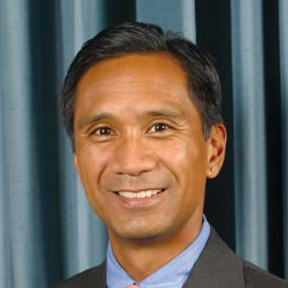While the Fourth Amendment guarantees “the right of the people to be secure in their persons ... and effects against unreasonable searches and seizures,” the Washington Metropolitan Area Transit Authority (WMATA) made it clear earlier this week that the Constitution does not apply in D.C. According to Metro Transit Police Chief Michael Taborn, “Inspections could take place at any Metrorail station or Metrobus stop. They will be random, unannounced and focused on explosive detection.” While the justification supplied for ignoring the Constitution was one of deterring terrorists, the unfortunate reality is that this gross violation of rights is likely to be completely ineffective.
Comprising 86 Metrorail stations (many with more than one entrance) and over 12,000 bus stops, the WMATA operates the second-largest rail transit system and fifth-largest bus network in the United States. Given that there aren’t enough officers (WMATA or D.C. police) to conduct searches at all those stations and stops, a would-be terrorist only has to find a location without a checkpoint. Also, searches aren’t likely to be conducted 24 hours a day, which creates another easy way to exploit the program.
Moreover, because the searches will be random, the odds of catching anyone are low. Let’s assume that 700,000 people ride Metrorail on any given day and that ridership is evenly distributed between all 86 stations. Let’s also assume that searches are being conducted at half the stations. That means 350,000 people would be subject to search. If 1 in 10 persons are searched, only 35,000 out of 700,000 total riders (about 5 percent) will be searched. If there are 10 possible terrorists amongst 700,000 riders (an almost infinitesimally small percentage of the population), the probability of catching even a single terrorist as a result of a random search is near zero. In other words, it amounts to a finding-a-needle-in-the-haystack operation with odds that are only slightly better than winning a million dollars in D.C.’s Powerball lottery.
And it’s worth pointing out that by planning to conduct thousands of random bag searches, the WMATA assumes that terrorists would be too dim to adapt by, say, strapping bombs to their bodies. Yet adaptive behavior is almost second nature to a terrorist. If bombs are the threat the WMATA is worried about, a better idea is to have bomb-sniffing dogs at Metrorail stations and bus stops—but even then they can’t be everywhere at once.
Random searches reflect the post-9/11 preoccupation with trying to prevent the unpreventable. We would do well to remember what the IRA once said after a failed attempt on the life of then-Prime Minister Margaret Thatcher: “Today we were unlucky, but remember, we only have to be lucky once—you will have to be lucky always.” And it’s telling that British authorities chose not to institute random searches on the London tube system after the July 2005 bombings, recognizing that doing so would be ineffective and cripple their transportation system. Instead of trying to be lucky always, we would be better off adopting an approach based on resiliency—“the ability to recover readily from misfortune”—which accepts the cruel reality that terrorist attacks can happen. So rather than playing the lottery with random searches with dubious effectiveness in preventing terrorist attacks, we would be better off ensuring that we have the capability to quickly recover from an attack while keeping the Metrorail and buses running (rather than having to shut down the entire system, which was the response on 9/11). This is exactly the approach the Israeli government has taken in response to the threat of suicide bombers on buses.
Benjamin Franklin once wrote, “They who can give up essential liberty to obtain a little temporary safety, deserve neither liberty nor safety.” The WMATA’s random searches will guarantee that we have neither.







